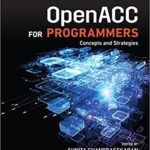In this video from the 2018 GPU Technology Conference, Prof. Taisuke Boku from the University of Tsukuba & JCAHPC and Duncan Poole, President of OpenACC describe how OpenACC is accelerating science. “Dr. Boku and his team are working on OpenACC and XcalableACC for accelerated computing. XcalableACC is an extension of XMP for accelerated clusters using OpenACC. Programmers can develop an application to insert XMP and OpenACC directives into a sequential program.”
Search Results for: OpenACC
Accelerating HPC Applications on NVIDIA GPUs with OpenACC
Doug Miles from NVIDIA gave this talk at the Stanford HPC Conference. “This talk will include an introduction to the OpenACC programming model, provide examples of its use in a number of production applications, explain how OpenACC and CUDA Unified Memory working together can dramatically simplify GPU programming, and close with a few thoughts on OpenACC future directions.”
Accelerating HPC Programmer Productivity with OpenACC and CUDA Unified Memory
Doug Miles from NVIDIA gave this talk at SC17. “CUDA Unified Memory for NVIDIA Tesla GPUs offers programmers a unified view of memory on GPU-accelerated compute nodes. The CPUs can access GPU high-bandwidth memory directly, the GPUs can access CPU main memory directly, and memory pages migrate automatically between the two when the CUDA Unified Memory manager determines it is performance-profitable. PGI OpenACC compilers now leverage this capability on allocatable data to dramatically simplify parallelization and incremental optimization of HPC applications for GPUs.”
Video: OpenACC Eases GPU Programming for HPC at SC17
In this video from SC17, Sunita Chandrasekaran from OpenACC.org and Stan Posey from NVIDIA describe how OpenACC eases GPU programming for HPC. “At SC17, OpenACC.org announced milestones highlighting OpenACC’s broad adoption in weather and climate models that simulate the Earth’s atmosphere, including one of this year’s Gordon Bell finalist. Additionally, the organization announced their hackathon momentum and the new OpenACC 2.6 specification.”
OpenACC Online Programming Course
This course, organized by OpenACC.org, the Pittsburgh Supercomputing Center and NVIDIA, is comprised of three instructor-led classes that include interactive lectures with dedicated Q&A sections and hands-on exercises. The course covers analyzing performance, parallelizing and optimizing your code. “Join us for the free Introduction to OpenACC course to learn how to start accelerating your code […]
New Book: OpenACC for Programmers
Sunita Chandrasekaran and Guido Juckeland have published a new book on Programming with OpenACC. “Scientists and technical professionals can use OpenACC to leverage the immense power of modern GPUs without the complexity traditionally associated with programming them. OpenACC for Programmers integrates contributions from 19 leading parallel-programming experts from academia, public research organizations, and industry.”
OpenACC Brings Directives to Accelerated Computing at ISC 2017
In this video from ISC 2017, Sunita Chandrasekaran and Michael Wolfe describe how OpenACC makes GPU-accelerated computing more accessible to scientists and engineers. “OpenACC is a user-driven directive-based performance-portable parallel programming model designed for scientists and engineers interested in porting their codes to a wide-variety of heterogeneous HPC hardware platforms and architectures with significantly less programming effort than required with a low-level model.”
Video: OpenACC Update from ISC 2017
In this video from ISC 2017, Sunita Chandrasekaran and Michael Wolfe present an overview of OpenACC and a preview of upcoming GPU Hackathon events. “OpenACC is a user-driven directive-based performance-portable parallel programming model designed for scientists and engineers interested in porting their codes to a wide-variety of heterogeneous HPC hardware platforms and architectures with significantly less programming effort than required with a low-level model.”
OpenACC Takes Off at ISC17
Today the OpenACC standards group announced plans to showcase new advancements and increasing momentum for their programming model at ISC 2017 in Frankfurt. “OpenACC is a user-driven directive-based performance-portable parallel programming model designed for scientists and engineers interested in porting their codes to a wide-variety of heterogeneous HPC hardware platforms and architectures with significantly less programming effort than required with a low-level or explicit models.”
Introduction to Parallel Programming with OpenACC – Part 2
In this video, Michael Wolfe from PGI continues his series of tutorials on parallel programming. “The second in a series of short videos to introduce you to parallel programming with OpenACC and the PGI compilers, using C++ or Fortran. You will learn by example how to build a simple example program, how to add OpenACC directives, and to rebuild the program for parallel execution on a multicore system. To get the most out of this video, you should download the example programs and follow along on your workstation.”












